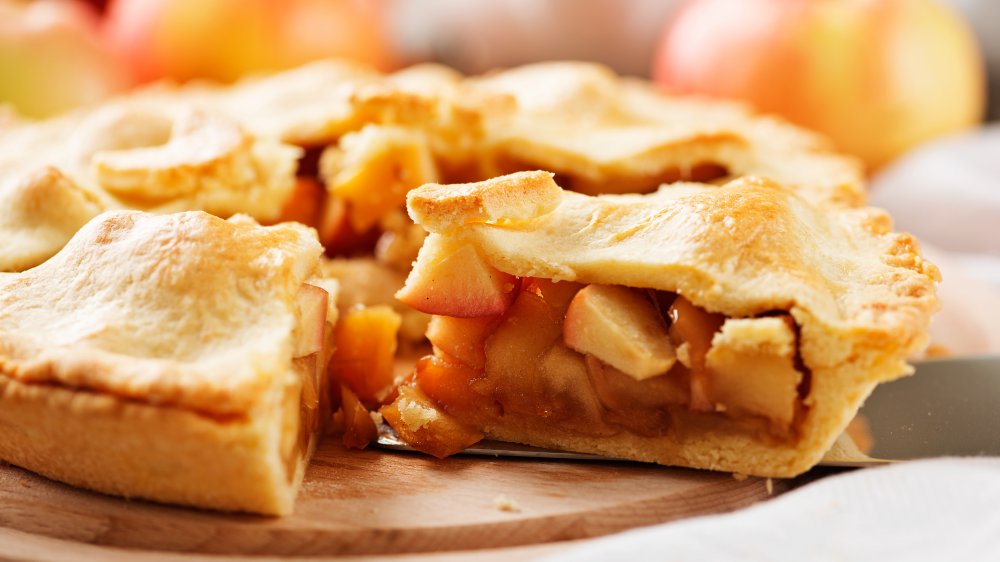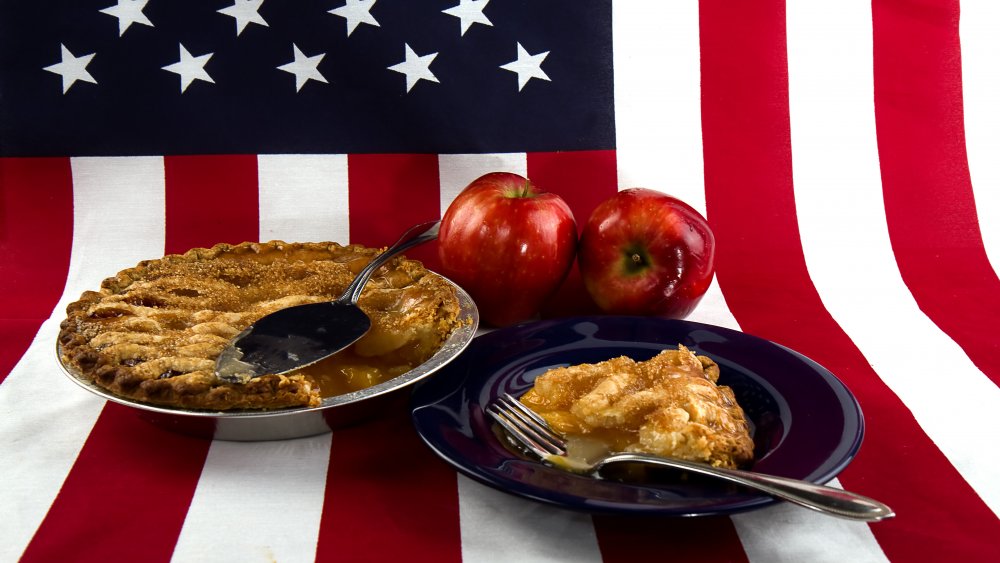The Origin Of Apple Pie Isn't What You Think
Food brings people together, so naturally, it unites the states of America. It's a country of Florida oranges, Georgia pecans, California raisins, and Idaho potatoes. It's also a fast-food nation that rejoices when a man eats 30,000 Big Macs. Indeed, it seems the way to America's heart (and even more so its arteries) is through its stomach. But of all the foods that people use to symbolize the United States, apple pie takes the cake.
The strange thing about this association is that America has invented many iconic foods — none of which are apple pie, a dessert that predates the nation by centuries. For instance, Food & Wine describes how Ruth Wakefield invented chocolate chip cookies in Whitman, Massachusetts. As noted by the Encyclopedia Britannica, Whitman is in Plymouth County, widely (though incorrectly) recognized as the birthplace of Thanksgiving. According to The Chocolate Chip Cookie Queen, Wakefield mailed her cookies to U.S. troops serving in WWII, and future President John F. Kennedy visited her renowned Toll House Inn.
Yet nobody dubs a U.S. tradition "as American as chocolate chip cookies." In fact, Smithsonian writes that U.S. servicemen in WWII said they were fighting for "mom and apple pie," inspiring the famous saying, "As American as mom and apple pie." So how did this specific dessert become so synonymous with America?
The Appleseeds of change
The earliest documented recipe for apple pie originated in England in 1381, writes Priceonomics. The apple pies of antiquity lacked the crust Americans know and love, but Brits were nonetheless enamored. Such was their affection that poets and writers referenced apple pies in romantic soliloquies. They were made with the sort of sweet apples that someone might not mind locking lips with. By contrast, the North American continent had to be content with so-called crabapples, which were intolerably sour and presumably made your mouth crabby.
The apples used in the American pies didn't arrive on American soil until the mid-1600s. Furthermore, the first confirmed records of Americans actually eating apple pie didn't appear until 1697, over 300 years after England's earliest known recipe. So what happened? Does an apple a day keep historical accuracy away? Appropriately enough, the first seeds of America's love affair with apples were planted by none other than John Chapman, otherwise known as "Johnny Appleseed."
Appleseed didn't plant pie-trees, but he did turn crabapples into booze, earning him a mythic status that helped perpetuate the idea that apples were somehow "uniquely American." Another major contributing factor was the Pennsylvania Dutch, who pioneered methods of apple preservation in the 18th century, enabling the baking of apple pies all year round.

